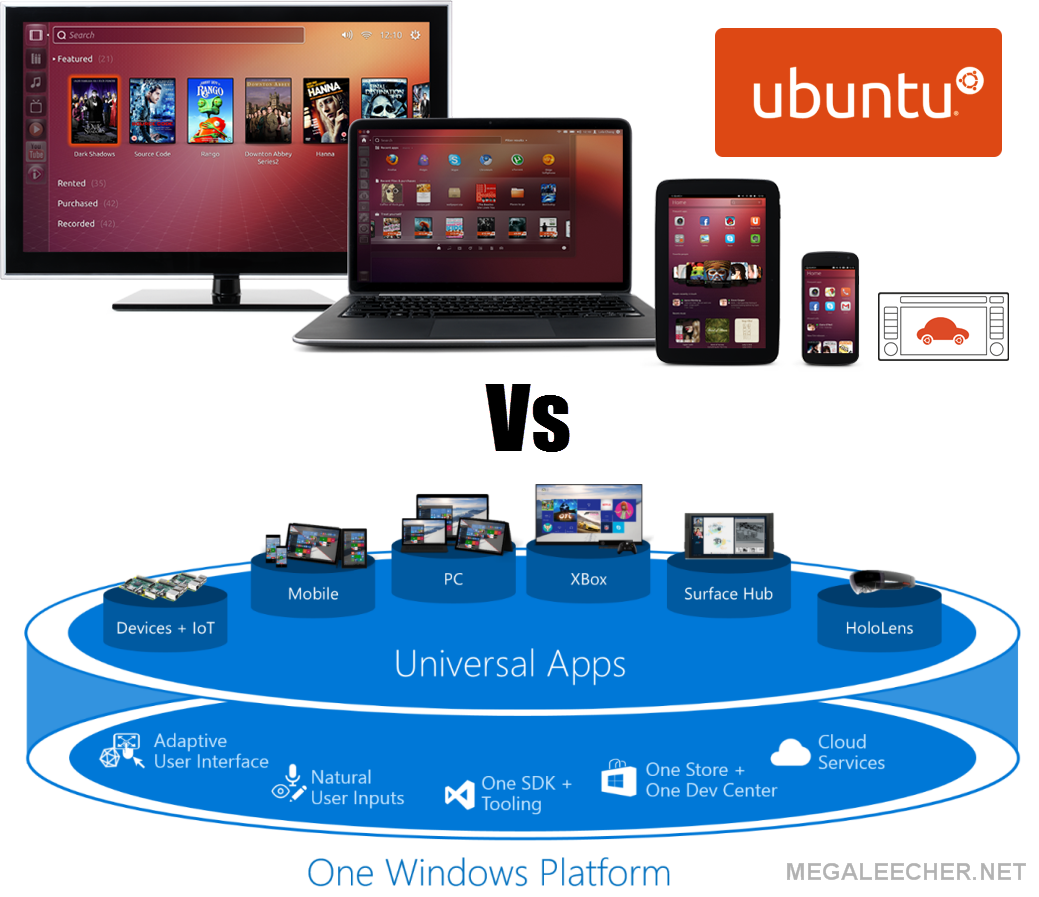With a phenomenal increase in mobile and tablet users, converged computing is definitely going to be the next big thing in the world of technology. To elaborate, "Phone–PC convergence" means a single app Eco-system and user-interface across mobile, tablet or Desktop computing devices. The technology industry has already prepped the end users for the shift. Ubuntu was without the doubt one of the first major OS name to afloat the idea and even start working on it, with options ranging from Ubuntu Edge, Ubuntu For Cars or the Nexphone concept the idea is now well conceptualized and waiting to became a reality sooner or later, recently Microsoft also joined the race with Windows 10 and started talking about the idea of "Universal Apps" across the Windows devices Eco-system. Microsoft has also taken the first step to make way into the Linux stronghold of "Internet of Things (IoT)" devices with it's "Windows For Devices" initiative and has already started offering free Windows 10 for Raspberry Pi 2.
In a recent presentation Mark Shuttleworth founder of Canonical’s Box (the company to market commercial support for Ubuntu) focused more on the convergence, specifying that currently Ubuntu’s phone application platform can already resize and fit applications to fit the different screen sizes, including smart phones to windows desktop screen sizes.

Here is a peep on how both Windows and Ubuntu are being remodeled around convergence and what are their USP's.
Hardware
Windows : With the acquisition of Nokia, the Finnish mobile handset maker, Windows is at an edge with a strong hardware arm at its side. They have the resources available that can produce phones and tablets to complement the new sets of features of Windows 10.
Ubuntu : In a speech Shuttleworth had mentioned that the first Ubuntu device with the phone – PC convergence will not be, to quote him the “biggest, baddest workstation”. The Ubuntu phone to be released will include the typical mid-range Android handsets.
Flexibility
Windows : With the Windows 10 OS, the users will be stuck with whatever Microsoft offers in the platter. There will be hardly any scope for customization as per the user preference.
Ubuntu : Just like other Linux software packages, with Ubuntu you can change stuff you do not like. Generally, you have the option to swap stuff with the help of a few terminal commands.
Open Source Apps
Windows : There is no denying the fact that most big open source apps are available on Windows platform. But if you are an open source junkie, you might feel a bit restrained with Windows 10.
Ubuntu : With Ubuntu the range of high quality open source is seamless. It is like the wildest dream come true for an open source junkie.
User Interface
Windows : There is no new innovation on the user interface front. Windows 10 will be sticking to the dynamic live tiles content display format.
Ubuntu : Taking the user experience to the next level Ubuntu has designed the OS UI around the user interest. The distinction between online and offline content diminishes as the related content of interest are grouped together. This definitely adds a new dimension to the UI experience of the user.
Who Will Be The First To Hit The Market?
Microsoft recently announced that it plans to release the phone post Windows 10 for PCs. While the PC version will be launched this summer, somewhere late July, the phone version is expected on an unspecified later date.
The slip of the release date gives Ubuntu the perfect opportunity to get ahead in the race. However, there are hints that Canonical might also be struggling at their end. The Unity 8 and Mir are in the process of shaping up. Speculation is that these may be in top shape for Wily Werewolf (Ubuntu 15.10) by October this year.
Comments
How the winds change! Where's
How the winds change! Where's Apple now? Even Google's messed around with Android and Chrome.
Ever smaller, more powerful, cooler-running, power-sipping chips gives real credence to the term mobile PC, long after Palm OS, then Motorola, messed around with the idea. Credit ought to be given to KDE though, who have been converged for a while now.
Maybe it'll boil down to the hardware or the user experience, but I hope it'll be about proprietary verses Open Source, and I hope that Open Source will ultimately win.
Add new comment